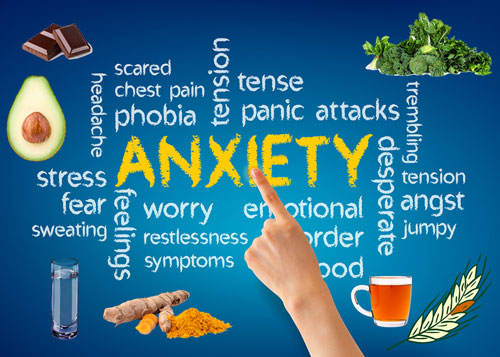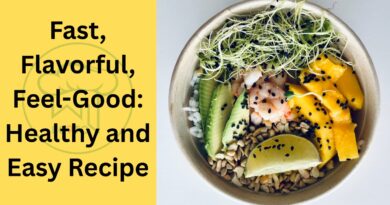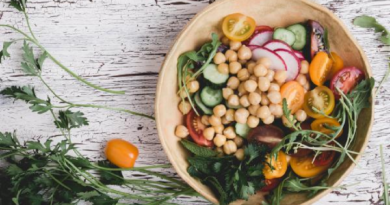How to Use Food to Reduce Stress and Anxiety
In today’s fast-paced world, stress and anxiety have become common challenges. While exercise, mindfulness, and sleep are essential tools to combat these issues, the role of food is often underestimated. The right diet can play a significant part in reducing stress and promoting mental well-being. Here’s how you can use food to calm your mind and nourish your body.
-
Incorporate Foods Rich in Omega-3 Fatty Acids
Omega-3 fatty acids, found in fatty fish like salmon, mackerel, and sardines, are known to reduce inflammation and improve brain function.
- Why It Helps: Omega-3s can lower cortisol levels, the body’s primary stress hormone, and boost mood-regulating neurotransmitters like serotonin.
- Other Sources: Walnuts, flaxseeds, and chia seeds for vegetarians and vegans.
-
Opt for Magnesium-Rich Foods
Magnesium is a natural relaxant that helps regulate the nervous system and reduces muscle tension.
- What to Eat: Leafy greens (spinach, kale), nuts (almonds, cashews), seeds, and whole grains like quinoa.
- Why It Helps: Magnesium deficiency has been linked to increased anxiety, so including these foods can have a calming effect.
-
Snack on Dark Chocolate
Dark chocolate (70% cocoa or higher) is more than a sweet treat—it’s a stress-relief powerhouse.
- Why It Helps: It contains flavonoids that improve brain function and reduce stress hormones. Additionally, it promotes the release of endorphins, the “feel-good” chemicals.
- How to Consume: Enjoy in moderation—about 1 ounce per day.
-
Add Probiotic Foods for Gut Health
A healthy gut is directly linked to mental well-being, often referred to as the “gut-brain axis.”
- What to Eat: Yogurt, kefir, kimchi, sauerkraut, and fermented foods like idli or dosa.
- Why It Helps: Probiotics can improve gut health, which in turn reduces symptoms of stress and anxiety.
-
Reach for Vitamin B-Rich Foods
Vitamin B, particularly B6 and B12, play a vital role in brain health and mood regulation.
- What to Eat: Eggs, lean meat, dairy products, and fortified cereals. For plant-based options, try legumes, nutritional yeast, and avocados.
- Why It Helps: Vitamin B6 aids in the production of serotonin, while B12 supports the nervous system.
-
Include Foods High in Antioxidants
Oxidative stress can contribute to anxiety, and antioxidants help combat it.
- What to Eat: Berries (blueberries, strawberries), green tea, turmeric, and oranges.
- Why It Helps: These foods neutralize free radicals, reducing inflammation and promoting mental clarity.
-
Stay Hydrated with Herbal Teas
Hydration is crucial for maintaining energy and focus, but herbal teas offer additional calming benefits.
- What to Drink: Chamomile tea for relaxation, green tea for gentle stimulation, and peppermint tea for soothing digestion.
- Why It Helps: Certain teas contain compounds like L-theanine that promote relaxation without drowsiness.
-
Don’t Skip Complex Carbohydrates
Complex carbs help stabilize blood sugar and boost serotonin production.
- What to Eat: Oats, sweet potatoes, whole-grain bread, and legumes.
- Why It Helps: Balanced blood sugar levels prevent mood swings and reduce feelings of anxiety.
-
Cut Back on Caffeine and Sugar
While caffeine and sugary treats provide temporary energy, they can also cause crashes and increase anxiety.
- What to Avoid: Limit coffee and energy drinks and opt for natural sugars in fruits instead of processed snacks.
- Why It Helps: Reducing stimulants helps maintain a stable mood and energy levels.
-
Practice Mindful Eating
How you eat is just as important as what you eat.
- Why It Helps: Eating slowly and savoring each bite helps you focus on the present moment, reducing stress and enhancing digestion.
- What to Do: Avoid distractions like TV or phones during meals and pay attention to your body’s hunger and fullness cues.
Conclusion
Using food to combat stress and anxiety isn’t about restrictive diets, it’s about making mindful choices that nourish your body and mind. Incorporate these stress-relieving foods into your daily routine, and you’ll notice a positive shift in your mood and overall well-being. Remember, small dietary changes can lead to big improvements in how you feel. Combine these choices with regular exercise, sleep, and self-care for a holistic approach to stress management.
Your kitchen can be your first line of defense against stress—start today and let food be your medicine!
Visit FGITO and start your journey as Home Chef.
Also Read: Affordable Cooking Essentials for Beginners




